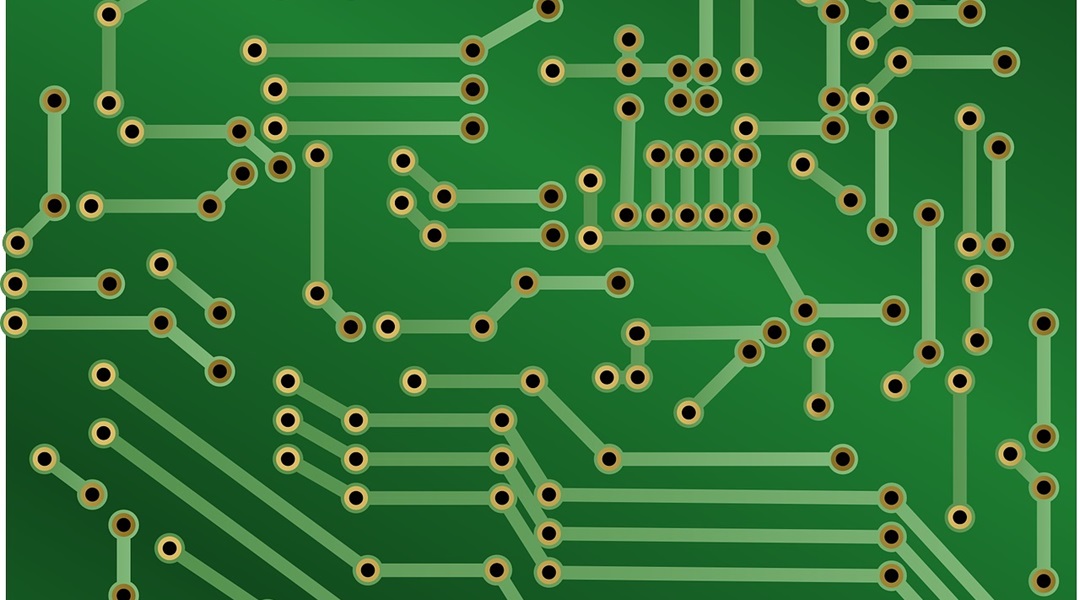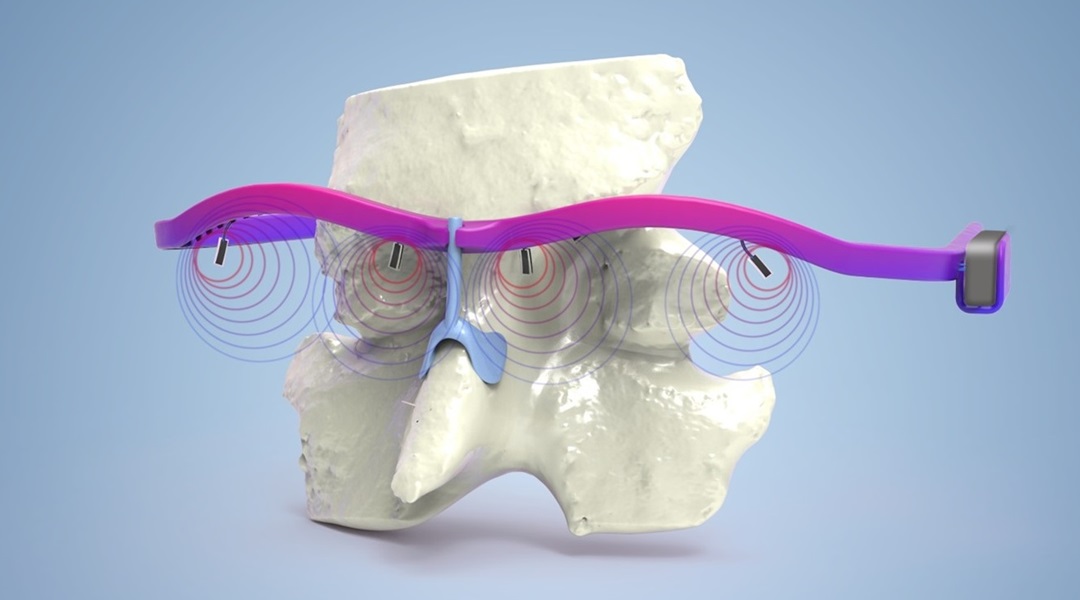Latest

Haitham Amal: targeting autism spectrum disorder, Alzheimer’s disease, and glioblastoma with small-molecule drugs
With FDA orphan drug approval secured, Amal and his team are preparing for phase 1 clinical trials of their small-molecule drugs in 2026.

New Doppler cloak hides moving objects by making them appear static
Doppler cloak confuses radars by altering the phase of incoming radar waves in real time.

Turning Food into Lasers: A New Era in Information Encoding and Sensing
Fabrication of microlasers using all edible components.

Haitham Amal: targeting autism spectrum disorder, Alzheimer’s disease, and glioblastoma with small-molecule drugs
With FDA orphan drug approval secured, Amal and his team are preparing for phase 1 clinical trials of their small-molecule drugs in 2026.

Soy protein fuels the future of eco-friendly solid-state batteries
The world’s most grown legume could be used to make the batteries of the future.

Machine learning identifies anti-aging neuroprotective treatments
The effects of aging on the human brain could be slowed down with the help of artificial intelligence.

New Doppler cloak hides moving objects by making them appear static
Doppler cloak confuses radars by altering the phase of incoming radar waves in real time.

Turning Food into Lasers: A New Era in Information Encoding and Sensing
Fabrication of microlasers using all edible components.

Haitham Amal: targeting autism spectrum disorder, Alzheimer’s disease, and glioblastoma with small-molecule drugs
With FDA orphan drug approval secured, Amal and his team are preparing for phase 1 clinical trials of their small-molecule drugs in 2026.

Soy protein fuels the future of eco-friendly solid-state batteries
The world’s most grown legume could be used to make the batteries of the future.
ASN Newsletter
Sign up for our newsletter and receive the latest science news directly to your inbox.

Quantum router preserving delicate photon states may advance quantum technologies
Low-loss router based on an interferometer preserves polarization while directing single photons and entangled pairs.

Edible electronics realize safe, complex monitoring devices
Edible electronics from non-toxic materials enable complex ingestible devices for healthcare and food monitoring.

Metabolic–Epigenetic Link Between Sleep Deprivation and Immune Dysregulation
Sleep deprivation alters immune cell metabolism, causing changes to epigenetics through lactylation, triggering immune dysregulation.

Micron-sized hidden dimensions could solve two of physics’ deepest puzzles
Extra dimensions at the microscale could be tested experimentally within 3-5 years.

Smart Eye Sensor Warns of Dangerous Fatigue
Compact sensors enable integration of fatigue feedback into daily decision-making.

Machine learning identifies anti-aging neuroprotective treatments
The effects of aging on the human brain could be slowed down with the help of artificial intelligence.

Self-Healing Hydrogels Could Help Injured Ligaments Regenerate
Cell-laden hydrogels could promote tissue regeneration while avoiding immune rejection.

Edible electronics realize safe, complex monitoring devices
Edible electronics from non-toxic materials enable complex ingestible devices for healthcare and food monitoring.

Metabolic–Epigenetic Link Between Sleep Deprivation and Immune Dysregulation
Sleep deprivation alters immune cell metabolism, causing changes to epigenetics through lactylation, triggering immune dysregulation.
Machine learning identifies anti-aging neuroprotective treatments
The effects of aging on the human brain could be slowed down with the help of artificial intelligence.
Self-Healing Hydrogels Could Help Injured Ligaments Regenerate
Cell-laden hydrogels could promote tissue regeneration while avoiding immune rejection.
Edible electronics realize safe, complex monitoring devices
Edible electronics from non-toxic materials enable complex ingestible devices for healthcare and food monitoring.
Metabolic–Epigenetic Link Between Sleep Deprivation and Immune Dysregulation
Sleep deprivation alters immune cell metabolism, causing changes to epigenetics through lactylation, triggering immune dysregulation.

Quantum router preserving delicate photon states may advance quantum technologies
Low-loss router based on an interferometer preserves polarization while directing single photons and entangled pairs.

Micron-sized hidden dimensions could solve two of physics’ deepest puzzles
Extra dimensions at the microscale could be tested experimentally within 3-5 years.

Quantum Anomalies in Condensed Matter: From Theoretical Peculiarities to Tangible Science
Making quantum anomalies accessible to experimentalists could redefine next-generation technologies and device engineering.

Fermilab Confirms Muon g-2 Measurements
Fermilab releases its final results, testing the Standard Model of particle physics.
Quantum router preserving delicate photon states may advance quantum technologies
Low-loss router based on an interferometer preserves polarization while directing single photons and entangled pairs.
Micron-sized hidden dimensions could solve two of physics’ deepest puzzles
Extra dimensions at the microscale could be tested experimentally within 3-5 years.
Quantum Anomalies in Condensed Matter: From Theoretical Peculiarities to Tangible Science
Making quantum anomalies accessible to experimentalists could redefine next-generation technologies and device engineering.
Fermilab Confirms Muon g-2 Measurements
Fermilab releases its final results, testing the Standard Model of particle physics.

New Doppler cloak hides moving objects by making them appear static
Doppler cloak confuses radars by altering the phase of incoming radar waves in real time.

New Doppler cloak hides moving objects by making them appear static
Doppler cloak confuses radars by altering the phase of incoming radar waves in real time.

Machine learning identifies anti-aging neuroprotective treatments
The effects of aging on the human brain could be slowed down with the help of artificial intelligence.

Soy protein fuels the future of eco-friendly solid-state batteries
The world’s most grown legume could be used to make the batteries of the future.
New Doppler cloak hides moving objects by making them appear static
Doppler cloak confuses radars by altering the phase of incoming radar waves in real time.
New Doppler cloak hides moving objects by making them appear static
Doppler cloak confuses radars by altering the phase of incoming radar waves in real time.
Machine learning identifies anti-aging neuroprotective treatments
The effects of aging on the human brain could be slowed down with the help of artificial intelligence.
Soy protein fuels the future of eco-friendly solid-state batteries
The world’s most grown legume could be used to make the batteries of the future.

Soy protein fuels the future of eco-friendly solid-state batteries
The world’s most grown legume could be used to make the batteries of the future.

Water-powered gadgets may be on the horizon thanks to new evaporation-based energy device
Scientists created an “evapolectrics” generator that draws power directly from water evaporation, offering a sustainable, battery-free energy source from humidity.

Climate pledges could shrink global cropland
The tradeoff raises concerns about food security, particularly for the Global South.

Sustainable building material extracted from seawater
A sand-like material can be extracted from seawater by adding carbon dioxide, potentially making the building industry more sustainable.
Soy protein fuels the future of eco-friendly solid-state batteries
The world’s most grown legume could be used to make the batteries of the future.
Water-powered gadgets may be on the horizon thanks to new evaporation-based energy device
Scientists created an “evapolectrics” generator that draws power directly from water evaporation, offering a sustainable, battery-free energy source from humidity.
Climate pledges could shrink global cropland
The tradeoff raises concerns about food security, particularly for the Global South.
Sustainable building material extracted from seawater
A sand-like material can be extracted from seawater by adding carbon dioxide, potentially making the building industry more sustainable.

Haitham Amal: targeting autism spectrum disorder, Alzheimer’s disease, and glioblastoma with small-molecule drugs
With FDA orphan drug approval secured, Amal and his team are preparing for phase 1 clinical trials of their small-molecule drugs in 2026.

Claudia Loebel, understanding cell memory could lead to patient-specific treatments
Recreating the material that surrounds cells, Loebel aims to better understand cell memory and its role in disease development.

Haruka Sasaki, uncovering the link between melatonin and asthma
Haruka Sasaki is researching how melatonin impacts asthma to create new treatments for life-threatening nocturnal attacks.

Riccardo Bassoli: How quantum computing will redefine wireless communication
Future 6G wireless networks will rely on quantum computers, but developing the technology and making it sustainable is complex.







